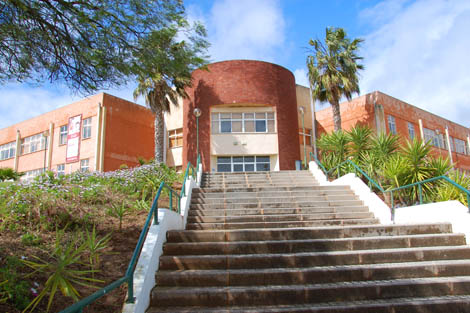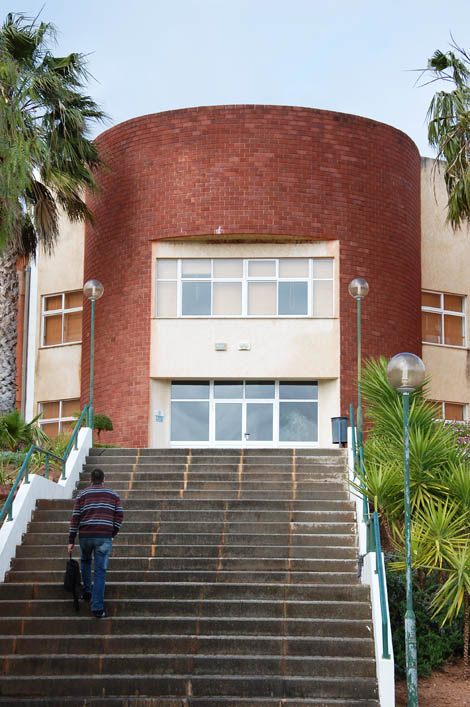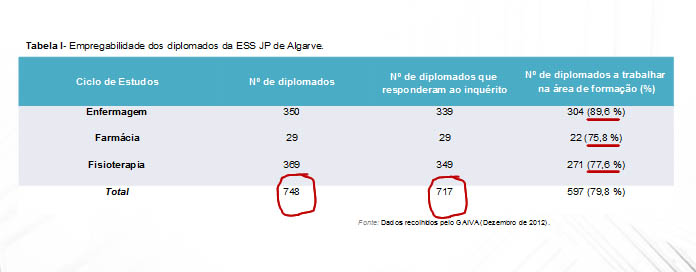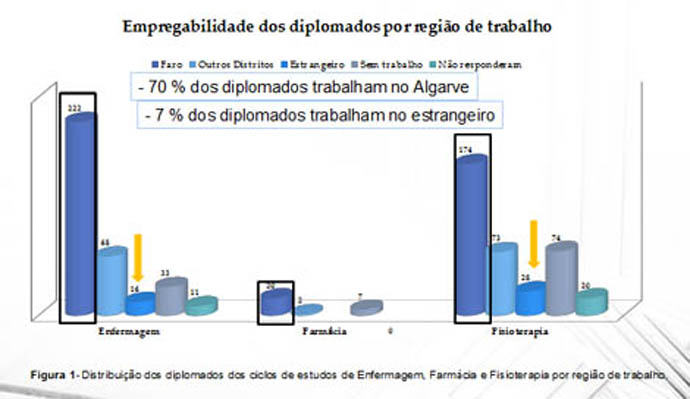School of Health Jean Piaget de Silves turns 10 and announces plans for the future – Sul Informação
SulAlentejo ![]()
![]()
function doGTranslate(lang_pair) {if(lang_pair.value)lang_pair=lang_pair.value;if(lang_pair==”)return;var lang=lang_pair.split(‘|’)[1];if(typeof ga==’function’){ga(‘send’, ‘event’, ‘GTranslate’, lang, location.pathname+location.search);}var plang=location.pathname.split(‘/’)[1];if(plang.length !=2 && plang != ‘zh-CN’ && plang != ‘zh-TW’ && plang != ‘hmn’ && plang != ‘haw’ && plang != ‘ceb’)plang=’pt’;if(lang == ‘pt’)location.href=location.protocol+’//’+location.host+gt_request_uri;else location.href=location.protocol+’//’+location.host+’/’+lang+gt_request_uri;}
Director: Elisabete Rodrigues • 21-05-2024 • Week 639 | Editorial Status | Board Characteristics | Advertising
Login | Register
The Jean Piaget de Silves School of Health, which today, the 20th, celebrates its first decade of life, […]
Elisabete Rodrigues
 The Jean Piaget de Silves School of Health, which today, the 20th, celebrates its first decade of life, has already trained around 800 health professionals in the areas of Nursing, Pharmacy and Physiotherapy, among others. The highlight of today’s celebrations is the conference by physician and bioethicist Daniel Serrão.
The Jean Piaget de Silves School of Health, which today, the 20th, celebrates its first decade of life, has already trained around 800 health professionals in the areas of Nursing, Pharmacy and Physiotherapy, among others. The highlight of today’s celebrations is the conference by physician and bioethicist Daniel Serrão.
A study carried out last December, by its Support Office for Insertion into Active Life, showed that the average employability rate of graduates is 80%. The course with the greatest employability is Nursing, as almost 90% of graduates are working in their training area.
At the different health units in the Algarve, 222 nurses and 174 Physiotherapists trained by the school are already working.
The search for a career abroad (England, France, Switzerland, Belgium) has been increasing among graduates, currently representing 7% of all trained professionals. About 6% of graduates in the field of Physiotherapy set up their own company.
The Jean Piaget de Silves School of Health (ESSJPS) has, in this academic year of 2012/2013, about 250 students, in the three courses currently taught (Pharmacy, Physiotherapy and Nursing).
Ana Almeida, director of ESSJPS, told the Sul Informação that most students are from the Algarve and Baixo Alentejo. The classes, which in 2004 had up to 80 students, now have a size of 20 to 30 students, which, while it may not be so good for the school’s coffers, is much better in pedagogical terms.
Many of the students are also people with some work experience, namely in health, who wanted to deepen and complete their training, taking a degree.
Equipped with modern facilities, a large part of the training of students is carried out in health institutions and units, namely health centers, public and private hospitals, clinics. «When we had classes of 80 students, the Algarve did not have the capacity to absorb all our interns. Now it’s not like that anymore and the overwhelming majority are internships in the Algarve, although there are also some in Lisbon, for example», added Ana Almeida.
João Grade, 27, a student in the 3rd year of the Nursing course, explains that “the course itself requires this training outside the school, which everyone has to comply with, even running through various institutions, as there are skills that only exist in a few sites’.
Measures for the future
If so far the employability of students trained by Piaget de Silves has been very good, at around 80% on average, the current situation forces us to take measures to ensure that this continues.
Thus, the ESSJPS created the Support Office for Insertion in Active Life, which aims to increase the number of job offers and strengthen relations with recruitment companies, boosting the figure of the graduate-mentor, create partnerships with companies and employers and update the professional path of graduates.
“In the context of partnerships with employing companies, we have, for example, relationships with a company that recruits nurses to Germany and there are even our graduates working in that country,” explained Nelson Sousa, deputy director of Piaget de Silves.
For its part, the graduate-mentor is a former student of Piaget who accepts to help with the integration of students, namely by providing them with information about the labor market, opportunities, constraints.
«Students, today, are increasingly aware of the problems that await them when they are finished and they think: today I am here, but when I finish what am I going to do? That’s precisely where we want to help, with this figure of the graduate-mentor», said Ana Almeida.
In order to continue to attract more students, the Jean Piaget de Silves School of Health will soon announce a reduction in tuition fees for the next school year. “We know that the country’s economic situation is difficult and that this affects families and people who want to continue their studies. The reduction of tuition fees is a way for us to make a contribution to help overcome the problems», stressed the school principal.
Ana Almeida also advises potential students and their families to do the math well: «there are studies that indicate that students who take the course outside their region in a public higher school end up spending more money and costing them more. to take the same course at a private school in their region of origin. Our tuition fee is in fact more expensive, but outside the region we have to take into account travel, accommodation, food and, all of this added up, it becomes more expensive».
Turning the Higher School of Health outwards
 One of the tasks in which the Jean Piaget de Silves School of Health has been focusing more and more on is turning outwards, towards the community. And here the Student Association, chaired by João Grade, has been doing much of the work.
One of the tasks in which the Jean Piaget de Silves School of Health has been focusing more and more on is turning outwards, towards the community. And here the Student Association, chaired by João Grade, has been doing much of the work.
«The objective is to give visibility to students outside the institution, articulating projects with the School’s management. All so that the population, namely the Algarve, know us and know what we are doing, so that we can gain ties with the population», explained the student leader.
Thus, screenings have been carried out, namely in schools and homes for the elderly, as well as volunteer actions, which include the collection of food and other goods to donate to the Church, Cadeia de Silves or institutions such as Castelo de Sonhos.
Another area in which they have invested heavily is in education and health promotion. In this context, Piaget de Silves students regularly travel to secondary and basic schools in the Algarve to provide free training to young students on topics such as sexuality and drug addiction, but also on nutrition or bullying.
“It is easier for us to reach these young people. We, as students, are very close to their ages, so it’s easier for them to ask us questions and talk to us about certain topics», guaranteed João Grade.
This afternoon, at the ceremony marking the 10th anniversary of the Jean Piaget de Silves School of Health, the ten schools from all over the Algarve that have worked the most in these partnerships will be distinguished: Albufeira Basic and Secondary School, Albufeira Schools Group West (which adds the Secondary), Secondary School (ES) of Silves, ES Tomás Cabreira and João de Deus, both in Faro, ES Manuel Teixeira Gomes (Portimão), ES Padre Martins de Oliveira (Lagoa), ES José Belchior Viegas (São Brás de Alportel), Francisco Fernandes Lopes School Group (Olhão), Silves Sul School Group.
But Piaget de Silves also promotes open days, in which it receives students from various levels of education in its facilities, and this year it has also started to promote visits by elementary school students in the municipality. “We need to open up our horizons, show what we can do in the future, from a very young age. It is not only at 15 or 16 that we will show students the career possibilities that there are. Starting to work with them from an early age is the best way to counteract the tendency of school dropouts, which is so big in the Algarve», underlined Ana Almeida.
During these visits – which had the precious help of the Friends of the Little Ones of Silves, who lent their bus to transport students from the neighboring public school – one of the areas that has caused the most fascination among children is the «experimental science center». “Just the other day, one of our very young visitors, after becoming very interested in the center, told me that he wants to be a biologist. And that’s what we want: to mobilize students to be interested in knowledge and science. If, in the future, they become our students, so much the better!” added the director of the Escola Superior de Saúde.
More data:
Of the 350 nursing graduates, 108 work at CHBA and 64 at HDF.
Following the Faro, the districts with the most ESSJPA graduates are: Lisbon (17); Setúbal (10); Beja (9) and Portalegre (8).
Of the 369 Physiotherapy graduates: 203 (55%) work in private practice/homes/clubs; 8 (2%) work in Health Centers; 12 (3,3%) in Hospitals and 21 (5,6%) set up their own company.
Of the 29 pharmacy graduates, 20 work in the district of Faro and 2 in the district of Lisbon.






Director: Elisabete Rodrigues
Week 639
Editorial Status
Board Characteristics
Advertising
Categorias
- conexaoautomotiva (2.235)
Post recentes
Sobre nós







